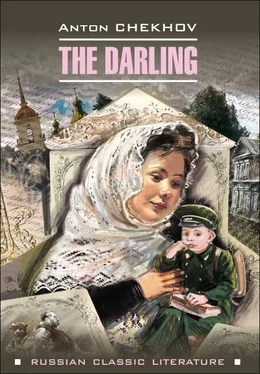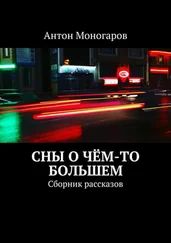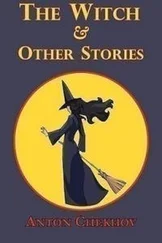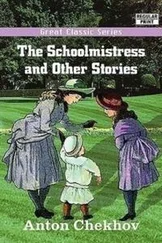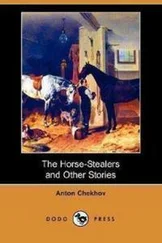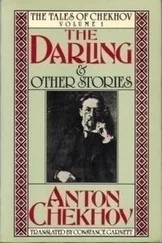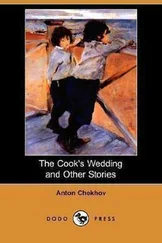Антон Чехов - The darling / Душечка. Сборник рассказов
Здесь есть возможность читать онлайн «Антон Чехов - The darling / Душечка. Сборник рассказов» — ознакомительный отрывок электронной книги совершенно бесплатно, а после прочтения отрывка купить полную версию. В некоторых случаях можно слушать аудио, скачать через торрент в формате fb2 и присутствует краткое содержание. Год выпуска: 2019, ISBN: 2019, Издательство: Литагент Каро, Жанр: Классическая проза, Русская классическая проза, Прочая научная литература, на английском языке. Описание произведения, (предисловие) а так же отзывы посетителей доступны на портале библиотеки ЛибКат.
- Название:The darling / Душечка. Сборник рассказов
- Автор:
- Издательство:Литагент Каро
- Жанр:
- Год:2019
- ISBN:978-5-9925-1149-9
- Рейтинг книги:5 / 5. Голосов: 1
-
Избранное:Добавить в избранное
- Отзывы:
-
Ваша оценка:
- 100
- 1
- 2
- 3
- 4
- 5
The darling / Душечка. Сборник рассказов: краткое содержание, описание и аннотация
Предлагаем к чтению аннотацию, описание, краткое содержание или предисловие (зависит от того, что написал сам автор книги «The darling / Душечка. Сборник рассказов»). Если вы не нашли необходимую информацию о книге — напишите в комментариях, мы постараемся отыскать её.
The darling / Душечка. Сборник рассказов — читать онлайн ознакомительный отрывок
Ниже представлен текст книги, разбитый по страницам. Система сохранения места последней прочитанной страницы, позволяет с удобством читать онлайн бесплатно книгу «The darling / Душечка. Сборник рассказов», без необходимости каждый раз заново искать на чём Вы остановились. Поставьте закладку, и сможете в любой момент перейти на страницу, на которой закончили чтение.
Интервал:
Закладка:
While Shamohin was talking I noticed that the Russian language and our Russian surroundings gave him great pleasure. This was probably because of the fact that he had been very homesick when abroad. Though he praised the Russians and ascribed to them a rare idealism, he did not disparage foreigners, and I gave him credit for that. It could be seen, too, that there was some uneasiness in his soul, that he wanted to talk more of himself than of women, and that I was in for a long story in the nature of a confession. And when we had asked for a bottle of wine and had each of us drank a glass, this was how he did in fact begin:
“I remember in a novel of Weltmann’s some one says, ‘So that’s the story!’ and some one else answers, ‘No, that’s not the story – that’s only the introduction to the story.’ In the same way what I’ve said so far is only the introduction; what I really want to tell you is my own love story. Excuse me, I must ask you again; will it bore you to listen?”
I told him it would not, and he went on:
The scene of my story is laid in the Moscow province in one of its northern districts. The scenery there, I must tell you, is exquisite. Our homestead is on the high bank of a rapid stream, where the water chatters noisily day and night: imagine a big old garden, neat flower-beds, beehives, a kitchen-garden, and below it a river with leafy willows, which, when there is a heavy dew on them, have a lustreless look as though they had turned grey; and on the other side a meadow, and beyond the meadow on the upland a terrible, dark pine forest. In that forest delicious, reddish agarics grow in endless profusion, and elks still live in its deepest recesses. When I am nailed up in my coffin I believe I shall still dream of those early mornings, you know, when the sun hurts your eyes: or the wonderful spring evenings when the nightingales and the landrails call in the garden and beyond the garden, and sounds of the harmonica float across from the village, while they play the piano indoors and the stream babbles … when there is such music, in fact, that one wants at the same time to cry and to sing aloud.
We have not much arable land, but our pasture makes up for it, and with the forest yields about two thousand roubles a year. I am the only son of my father; we are both modest persons, and with my father’s pension that sum was amply sufficient for us.
The first three years after graduating from the university I spent in the country, looking after the estate and constantly expecting to be elected on some local assembly; but what was most important, I was violently in love with an extraordinarily beautiful and fascinating girl. She was the sister of our neighbour, Kotlovitch, a ruined landowner who had on his estate pine-apples, marvellous peaches, lightning conductors, a fountain in the courtyard, and at the same time not a farthing in his pocket. He did nothing and knew how to do nothing. He was as flabby as though he had been made of boiled turnip; he used to doctor the peasants by homeopathy and was interested in spiritualism. He was, however, a man of great delicacy and mildness, and by no means a fool, but I have no fondness for these gentlemen who converse with spirits and cure peasant women by magnetism. In the first place, the ideas of people who are not intellectually free are always in a muddle, and it’s extremely difficult to talk to them; and, secondly, they usually love no one, and have nothing to do with women, and their mysticism has an unpleasant effect on sensitive people. I did not care for his appearance either. He was tall, stout, white-skinned, with a little head, little shining eyes, and chubby white fingers. He did not shake hands, but kneaded one’s hands in his. And he was always apologising. If he asked for anything it was “Excuse me”; if he gave you anything it was “Excuse me” too.
As for his sister, she was quite another story. I must explain that I had not been acquainted with the Kotlovitches in my childhood and early youth, for my father had been a professor at N., and we had for many years lived away. When I did make their acquaintance the girl was twenty-two, had left school long before, and had spent two or three years in Moscow with a wealthy aunt who brought her out into society. When I was introduced and first had to talk to her, what struck me most of all was her rare and beautiful name – Ariadne. It suited her so wonderfully! She was a brunette, very thin, very slender, supple, elegant, and extremely graceful, with refined and exceedingly noble features. Her eyes were shining, too, but her brother’s shone with a cold sweetness, mawkish as sugar-candy, while hers had the glow of youth, proud and beautiful. She conquered me on the first day of our acquaintance, and indeed it was inevitable. My first impression was so overwhelming that to this day I cannot get rid of my illusions; I am still tempted to imagine that nature had some grand, marvellous design when she created that girl.
Ariadne’s voice, her walk, her hat, even her footprints on the sandy bank where she used to angle for gudgeon, filled me with delight and a passionate hunger for life. I judged of her spiritual being from her lovely face and lovely figure, and every word, every smile of Ariadne’s bewitched me, conquered me and forced me to believe in the loftiness of her soul. She was friendly, ready to talk, gay and simple in her manners. She had a poetic belief in God, made poetic reflections about death, and there was such a wealth of varying shades in her spiritual organisation that even her faults seemed in her to carry with them peculiar, charming qualities. Suppose she wanted a new horse and had no money – what did that matter? Something might be sold or pawned, or if the steward 7 7 steward – a man who is employed to look after a house and lands
swore that nothing could possibly be sold or pawned, the iron roofs might be torn off the lodges and taken to the factory, or at the very busiest time the farm-horses might be put up for sale and sold there for next to nothing. These unbridled desires reduced the whole household to despair at times, but she expressed them with such refinement that everything was forgiven her; all things were permitted her as to a goddess or to Caesar’s wife. My love was pathetic and was soon noticed by every one – my father, the neighbours, and the peasants – and they all sympathised with me. When I stood the workmen vodka, they would bow and say: “May the Kotlovitch young lady be your bride, please God!”
And Ariadne herself knew that I loved her. She would often ride over on horseback or drive in a char-à-banc 8 8 char-à-banc – ( French ) a large comfortable vehicle used for pleasure trips
to see us, and would spend whole days with me and my father. She made great friends with the old man, and he even taught her to bicycle, which was his favourite amusement.
I remember helping her to get on the bicycle one evening, and she looked so lovely that I felt as though I were burning my hands when I touched her. I shuddered with rapture, and when the two of them, my old father and she, both looking so handsome and elegant, bicycled side by side along the main road, a black horse ridden by the steward dashed aside on meeting them, and it seemed to me that it dashed aside because it too was overcome by her beauty. My love, my worship, touched Ariadne and softened her; she had a passionate longing to be captivated just like me and to respond with the same love. It was so poetical!
But she was incapable of really loving as I did, for she was cold and already somewhat corrupted. There was some demon in her, whispering to her day and night that she was enchanting, adorable; and, having no definite idea for what object she was created, or for what purpose life had been given her, she never pictured herself in the future except as very wealthy and distinguished, she had visions of balls, races, liveries, of sumptuous drawing-rooms, of a salon of her own, and of a perfect swarm of counts, princes, ambassadors, celebrated painters and artists, all of them adoring her and in ecstasies over her beauty and her dresses …
Читать дальшеИнтервал:
Закладка:
Похожие книги на «The darling / Душечка. Сборник рассказов»
Представляем Вашему вниманию похожие книги на «The darling / Душечка. Сборник рассказов» списком для выбора. Мы отобрали схожую по названию и смыслу литературу в надежде предоставить читателям больше вариантов отыскать новые, интересные, ещё непрочитанные произведения.
Обсуждение, отзывы о книге «The darling / Душечка. Сборник рассказов» и просто собственные мнения читателей. Оставьте ваши комментарии, напишите, что Вы думаете о произведении, его смысле или главных героях. Укажите что конкретно понравилось, а что нет, и почему Вы так считаете.
